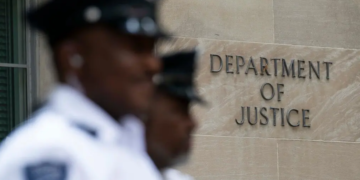Civil rights demonstrators sing “Freedom Songs” at temporary jail facilities at Mississippi State Fairgrounds on June 16, 1965. BETTMANN ARCHIVE/GETTY IMAGES. Img source: www.themarshallproject.org
April 10, 2024 Story by: Editor
Charles Caldwell’s voice was stifled by design. In 1860, he was among Mississippi’s silenced majority — 436,600 enslaved individuals compared to 354,000 Whites, as per the Census. Following the Civil War, Caldwell, one of 16 Black delegates, saw the right to vote extended to all men at the state’s constitutional convention in 1868. However, his ascent in Republican politics was cut short by a brutal ambush in 1875, orchestrated by white supremacists.
Caldwell’s murder was a calculated tactic of the post-war era, part of the Mississippi Plan to perpetuate White political dominance despite outnumbering freedmen. While most racist clauses of Mississippi’s 1890 constitution were abolished during the Civil Rights Movement, felony disenfranchisement endures. Originating from the constitution’s Section 241, this provision, designed to curb the Black vote, persists today, encompassing 102 offenses.
Efforts to reform felony disenfranchisement have been thwarted, with Republicans controlling the legislative process. State Rep. James K. Vardaman’s 1890 admission that the constitutional convention aimed to exclude Black people from politics underscores the law’s racist origins. Over 30 years, around 55,000 Mississippians, predominantly Black, have lost voting rights due to felony disenfranchisement.
Legal mechanisms such as poll taxes and literacy tests, products of the 1890 convention, targeted Black voters. Notably, violent crimes were excluded, reflecting the convention’s racist intent. Despite advances in civil rights legislation, Mississippi’s resistance to change persists, necessitating federal intervention.
Hannah Williams from Mississippi Votes highlights the state’s history of defiance toward federal mandates, emphasizing that true progress has never been voluntary. Flonzie Brown Wright, Mississippi’s first Black woman elected to public office, underscores the enduring commitment to maintaining minority disenfranchisement.
Mississippi stands among the 13 states imposing a lifetime voting ban, extending even beyond the completion of a felony sentence. While most states reserve such disenfranchisement for severe offenses like violent crimes or government corruption, Mississippi’s regulations strip voting rights for offenses as minor as writing a bad check or shoplifting.
Nationwide, there’s been a push to restore voting rights for those with felony convictions. Since 1997, 26 states along with the District of Columbia have expanded voting rights for this demographic, according to The Sentencing Project.
Mississippi last updated its Section 241 in 1968, adding murder and rape to the list of disenfranchising crimes, following the removal of burglary in 1950. Despite historical shifts, Black representation in the state’s government has never achieved a majority. Robert Luckett, a civil rights historian and professor at Jackson State University, traces the roots of Mississippi’s entrenched conservatism to the historic “Mississippi Plan,” designed to suppress Black political power.
The plan effectively marginalized Black voters in the 19th and 20th centuries, and its legacy persists today. Between 1875 and 1892, Black voter registration drastically declined from 67% to less than 6%. The exodus of hundreds of thousands of Black Mississippians during the Great Migration further reshaped the state’s demographic landscape, leading to the loss of Black majority status by 1940.
Despite sporadic pockets of Black political influence, such as Mound Bayou in Bolivar County, the broader Black vote remained suppressed until the 1960s. Those who stayed endured continued oppression, including lynchings, beatings, and imprisonment.
George W. Lee’s murder in 1955 and Fannie Lou Hamer’s harrowing ordeal illustrate the risks Black individuals faced for engaging in voter registration efforts. Hamer, a prominent civil rights figure, didn’t realize she could vote until she was 44 and endured brutal violence and imprisonment for her activism.
Barriers to Black political participation persisted even into the late 1960s, with civil rights activists in Jackson enduring mass arrests and inhumane detention during protests. These challenges underscore the enduring struggle for equitable political representation in Mississippi.
Source: [The Marshall Project – Jackson]

















